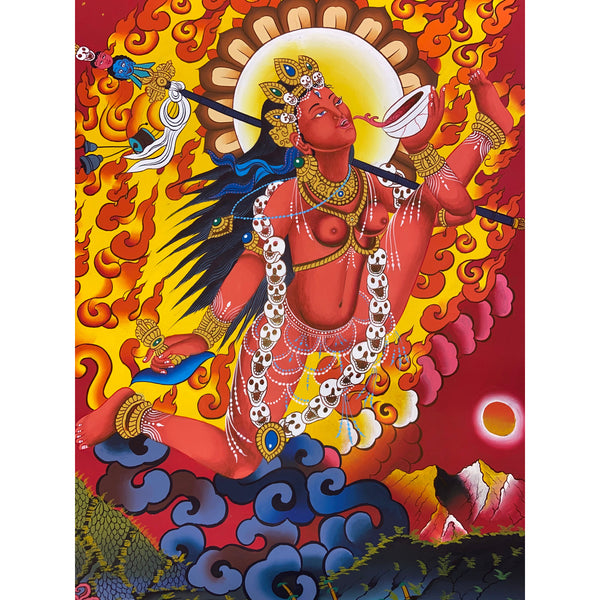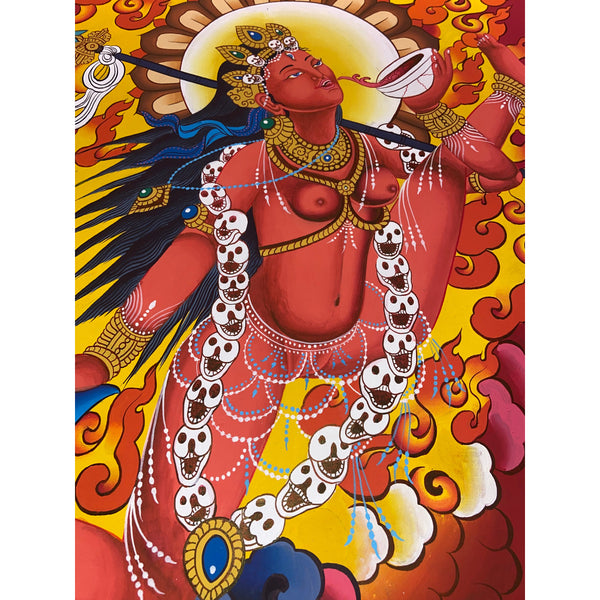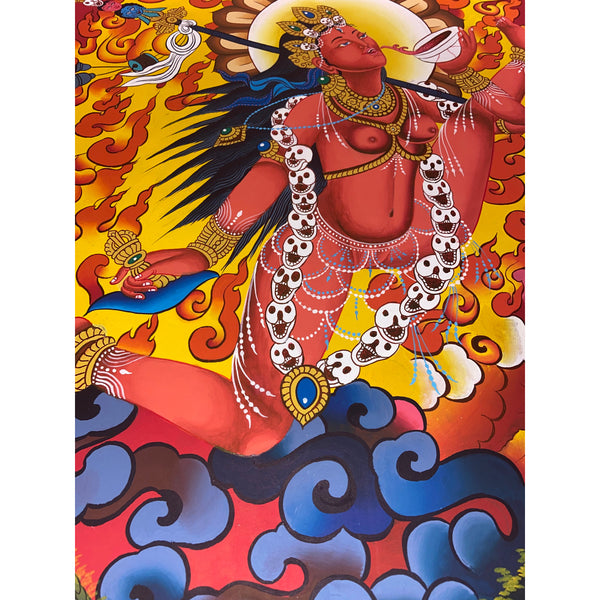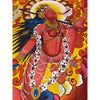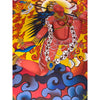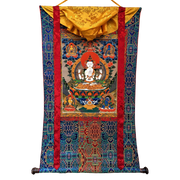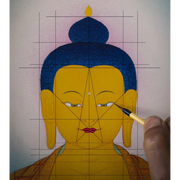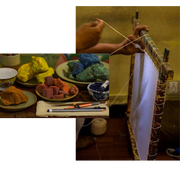Vajrayogini Tibetan Thangka Painting
NEW YEAR SALE
Get it between - .

Tibetan Thangka painting depicting Vajrayogini is perfect for various home décor ideas! This 100% hand-drawn Thangka painting made in Kathmandu Valley, Nepal can be decorated as an elegant and eccentric wall hanging in your home or office being a centrepiece of attention. It can also be placed on your family altar for meditation purposes as well as spiritual and emotional healing, attracting benevolent energy of the Tibetan Buddhist art.
Specification
- Dimensions: 79 x 54 cm
- Materials: Tibetan Gold Dust and Tibetan Colour mixed with Hide Glue
- Canvas: Organic Cotton
- Handmade in Nepal
-
Master Quality Thangka
Vajrayogini is the queen of Dakinis the female Tantric deities or “sky dancers”.
She is the supreme teacher of the Anuttarayoga Tantra, the Yoga practice that allow those who are plagued by strong desires and attachment, to attain enlightenment.
Vajrayogini is the main dakini of the Tantra of Chakrasamvara known also as “Heruka” and the most relevant tantric goddess of all traditions of Tibetan Buddhism.
Vajrayogini is very popular in Nepal especially among Newari in our region, in fact one of the most famous temple dedicated to this important daikini is in Sankhu a village near Changu Narayan where is located our thangka painting school.
Vajrayogini is represented in many different forms each having a unique name and appearance.
She is generally depicted as a beautiful young girl with three eyes and the traditional aspects of a dakini, including a “driguk” (a vajra-handled knife) in her right hand and a kapala (skull) filled with blood in her left hand.
The most common representations in traditional thangka art are: the Naropa form, the blood drinker called Naro Khacho, Vajravarahi the red dancing dakini, Chinnamasta the severed head form, Krodha Kali, the black form and Dechen Gyalmo the manifestation that assume a standing pose similar to queen Maya devi, the mother of Buddha.
Each aspect of Vajrayogini, her different forms and mandala has a peculiar spiritual significance. She can assume different poses and be surrounded by several deities or portrayed alone.
Because of the different manifestations and thangka painting designs, both size and prices can vary.
You can find answers to common questions on our FAQ page here.
View all our shop reviews at reviews page here.


